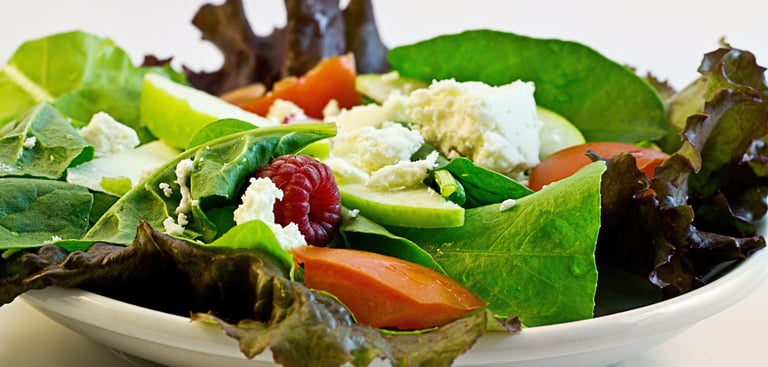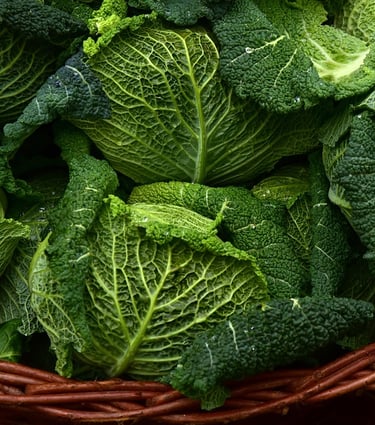From Lentils to Greens to Red meat: Understanding Nutritional Choices with Warfarin in Mind
A Perspective on Warfarin Diet


Many a times at work, I come across people who find it hard to manage an optimal anticoagulation on Warfarin as it is crucially dependant on whats on your plate. If you're one of the millions who take Warfarin and is struggling to manage your anticoagulation,This is where your search ends.
Warfarin is a blood thinner and works to prevent blood clots and keep your blood flowing by counteracting Vitamin K which is essential for clot formation.Your doctor would have carefully weighed the risk vs benefit and finally decided to proceed with anticoagulation.
Warfarin and related agents works by inhibiting the action of Vitamin K- an essential component for the clotting mechanism. Hence one has to be mindful of the vitamin K consumed through food as high vitamin K content in certain foods can negate the action of this drug.
In this blog post, we’ll navigate the fascinating world of food that harmonizes beautifully with Warfarin therapy. From pulse-packed lentils that fuel energy levels to leafy greens bursting with nutrients—all while ensuring you stay on track with your medication—we’ll explore how mindful eating can become an empowering part of your wellness journey.
Introduction to Warfarin and Its Importance
Warfarin and its related agents(Acenocoumarol) are usually prescribed when there is an underlying serious condition like Atrial Fibrillation, or Prosthetic valves that increases your probability for clot formation or when you already have a clot, to prevent its progression.
The relationship between diet and medication isn't just about avoiding certain foods—it's also about embracing options that support your well-being while ensuring your treatment remains effective. From hearty lentils to vibrant greens, the foods you choose can make all the difference in maintaining balance in your life.
Certain foods can either enhance or diminish Warfarin's action. This makes understanding these interactions vital for anyone on this medication. For instance, large amounts of vitamin K can counteract Warfarin’s effects, leading to increased clotting risks.
Conversely, some nutrients may boost Warfarin's potency unintentionally. Foods rich in omega-3 fatty acids like fish and flaxseeds might heighten the drug’s blood-thinning capabilities.
Being mindful of food choices is essential when managing your diet on Warfarin therapy. Each meal becomes an opportunity to maintain balance while ensuring safety in treatment outcomes.
Understanding Vitamin K and its Role in Warfarin Therapy
Vitamin K plays a crucial role in blood clotting. For individuals on warfarin, understanding this vitamin is essential. Warfarin works by inhibiting the action of vitamin K, thereby reducing clot formation.
There are different forms of vitamin K: K1 and K2 and K3.
Vitamin K1: found mainly in leafy greens and vegetables.
Vitamin K2: is found in animal sources including meat and liver and fermented products.
Vitamin K3: is a synthetic Form of Vitamin K and is not usually seen in food
Consistent intake of foods with vitamin K can help maintain stable INR levels on warfarin therapy.This means you don’t have to eliminate these foods entirely but rather moderate your consumption.Hence keeping track of your dietary choices allows effective warfarin therapy.
Common foods rich in Vitamin K and How to Incorporate Them in Your Diet
Green Leafy Vegetables:(Rich to Moderate Sources of Vitamin K)
Broccoli
Spinach
Kale
Lettuce
Cauliflower
Asparagus
Collard Greens
Parsley
Mustard Greens
Brussels Sprouts
Green Spring Onions
Fruits and Nuts:(Moderate Sources of Vitamin K)
Blueberries
Grapes
Pumpkin
Pomegranate
Avoccados
Kiwis
Cashews
Non Vegetarian Food:(Moderate Sources of Vitamin K)
Liver
Chicken
Meat
Egg Yolk
Kale and spinach top the list as excellent sources of Vitamin K. You can toss them into salads or smoothies in minimal quantities for added nutrition without overwhelming your system.
Broccoli and Brussels sprouts also contain significant amounts. Roasting them brings out their flavors, making healthy side dishes that pair well with various proteins.
If you enjoy herbs, parsley and basil are great options too. Sprinkle them over dishes or blend into sauces to elevate both taste and health benefits.
The key is consistency rather than elimination; maintain a stable intake level of these foods so your healthcare provider can adjust your dosage effectively if needed.
Heres a list of food items rich in vitamin K the quantities of which has to be kept in stable levels in diet to maintain a stable INR and prevent wide fluctuations in INR
For those of you who want to know the exact amount of Vitamin K In each food
Recommended Nutritional Choices for Those Taking Warfarin
When managing a Warfarin diet, it's crucial to focus on balance. Incorporating whole grains like brown rice and quinoa can provide essential nutrients without drastically affecting your INR levels.
Fruits and vegetables are key players. Choose low Vitamin K options such as apples, bananas, and bell peppers. These foods add fiber and antioxidants while keeping your meals vibrant.
Lean proteins from sources like chicken or fish support overall health without interfering with your medication. Nuts and seeds also offer healthy fats but should be consumed in moderation due to their calorie density.
Hydration is vital too. Water should be your go-to beverage; herbal teas can also be refreshing alternatives that won't impact your treatment plan negatively.
Lastly, consider probiotics from yogurt or kefir for gut health benefits. They help maintain digestive balance while fitting seamlessly into a Warfarin-friendly regimen.
Conclusion
The use of warfarin should not interfere with your maintenance of a healthy diet. However one must be aware of the amount of vitamin K in the food consumed and know that stable amounts of Vitamin K with the right dose of Warfarin can help you maintain a stable INR and keep your bleeding risk and clotting risk minimum.




